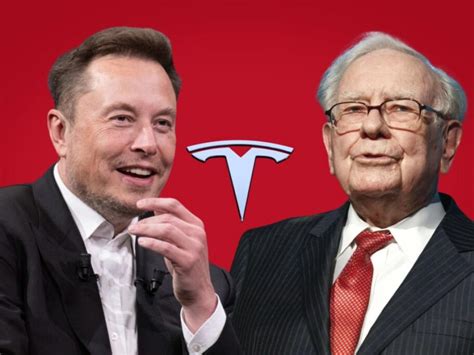
Elon Musk has publicly endorsed Warren Buffett’s proposed solution for addressing the U.S. fiscal deficit, a plan the billionaire investor claims can be executed in a mere five minutes. Buffett’s strategy, though not explicitly detailed in recent public statements, involves a straightforward approach to fiscal responsibility that has resonated with Musk, who voiced his support on social media, highlighting growing interest in simple, effective solutions to complex economic challenges.
Billionaire entrepreneur Elon Musk has thrown his weight behind an idea championed by legendary investor Warren Buffett to quickly address the United States’ growing fiscal deficit. While the specific details of Buffett’s plan remain somewhat elusive, the Oracle of Omaha has suggested a simple solution that could theoretically be implemented in just five minutes. Musk’s public endorsement has amplified the discussion around pragmatic approaches to tackling the national debt and sparked curiosity about what such a rapid fix might entail. The alignment of these two prominent figures on fiscal policy underscores a broader desire for decisive action to ensure long-term economic stability.
Musk’s Endorsement Amplifies Buffett’s Fiscal Plan
The backing of Elon Musk, CEO of Tesla and SpaceX, adds considerable weight to Warren Buffett’s previously stated confidence in resolving the U.S. fiscal deficit with surprising swiftness. Buffett, the chairman and CEO of Berkshire Hathaway, has repeatedly asserted his belief that the nation’s financial woes can be addressed with a concise, efficient strategy. Though the precise nature of this strategy hasn’t been publicly revealed, Musk’s recent social media endorsement has intensified speculation and generated widespread discussion.
“It could be done in five minutes,” Buffett has claimed regarding a fix for the deficit, a statement that has piqued the interest of both financial experts and the general public. The ambiguity surrounding Buffett’s specific solution has fueled much speculation, with many interpreting his remarks as a call for political will and decisive action rather than a detailed economic formula. Musk’s support validates this sentiment, suggesting that simple, effective solutions are within reach if leaders are willing to pursue them.
Lack of Specifics Fuels Speculation
The core question remains: What exactly is Buffett’s five-minute solution? Given the lack of concrete details, analysts and commentators have offered various interpretations. Some suggest that Buffett’s comment is a symbolic representation of the need for immediate, decisive action on spending and taxation. Others propose that it involves a combination of targeted spending cuts and revenue enhancements that, while complex in their implementation, could be outlined in a brief, impactful policy directive.
“The key is to have the will to act,” suggests one financial analyst, “Buffett’s statement, and now Musk’s endorsement, serve as a reminder that the solutions are often simpler than the political process makes them out to be.” This perspective aligns with the view that political gridlock and special interests are the primary obstacles to fiscal responsibility, rather than a lack of viable economic strategies.
The U.S. national debt currently stands at over $34 trillion, a figure that continues to climb, raising concerns about the long-term sustainability of government spending and the potential impact on future generations. Addressing this issue requires a comprehensive approach, but Buffett’s emphasis on a quick fix underscores the importance of prioritizing efficiency and effectiveness.
The Broader Context of the U.S. Fiscal Deficit
Understanding the significance of Buffett’s proposal and Musk’s endorsement requires a deeper understanding of the U.S. fiscal deficit. The deficit represents the difference between the government’s revenue and its expenditures in a given year. When the government spends more than it collects in taxes, it must borrow money to cover the shortfall, which adds to the national debt.
Several factors contribute to the fiscal deficit, including government spending on entitlement programs like Social Security and Medicare, defense spending, and tax policies. Economic downturns can also exacerbate the deficit, as tax revenues decline while government spending on unemployment benefits and other social safety net programs increases.
Addressing the deficit requires a multifaceted approach that includes both spending cuts and revenue increases. However, finding consensus on these measures is often challenging, as different political parties and interest groups have conflicting priorities.
Potential Implications of Buffett’s Plan
While the exact details of Buffett’s five-minute solution remain unknown, its potential implications are significant. If implemented effectively, the plan could help to stabilize the national debt, reduce the burden on future generations, and improve the long-term health of the U.S. economy.
However, any plan to address the deficit will inevitably involve trade-offs. Spending cuts could lead to reductions in government services and programs, while tax increases could dampen economic growth. Finding the right balance between these competing priorities is essential to ensure that any fiscal reform is both effective and sustainable.
Possible Elements of a Quick Fiscal Fix
Given the limited information available, speculation about the specific elements of Buffett’s plan is rampant. However, based on his past statements and investment strategies, it’s possible to infer some potential components:
- Targeted Spending Cuts: Buffett has often emphasized the importance of fiscal discipline and efficient resource allocation. A quick fix could involve identifying areas of government spending that are inefficient or wasteful and implementing targeted cuts to reduce overall expenditures.
- Revenue Enhancements: While Buffett is generally supportive of lower taxes, he has also acknowledged the need for revenue to fund essential government services. A quick fix could involve closing tax loopholes or implementing targeted tax increases on high-income earners or corporations.
- Simplification of the Tax Code: The U.S. tax code is notoriously complex, which creates opportunities for tax avoidance and evasion. Simplifying the tax code could generate additional revenue by making it easier for individuals and businesses to comply with their tax obligations.
- Increased Investment in Education and Infrastructure: Buffett has long advocated for investments in education and infrastructure, arguing that these investments are essential for long-term economic growth. A quick fix could involve prioritizing these investments to boost productivity and competitiveness.
- Entitlement Reform: Social Security and Medicare are two of the largest components of government spending. Addressing the long-term sustainability of these programs is essential for controlling the fiscal deficit. A quick fix could involve modest reforms to these programs, such as raising the retirement age or adjusting benefit levels.
Experts Weigh In
The endorsement by Elon Musk and the original suggestion by Warren Buffett have prompted reactions from economists and financial analysts. Many agree that the U.S. needs a sustainable fiscal policy but are skeptical about a “five-minute” solution.
“While the idea of a quick fix is appealing, the reality is that addressing the U.S. fiscal deficit requires a comprehensive and sustained effort,” said Dr. Anya Sharma, an economist at the Brookings Institution. “It’s unlikely that any single policy change could solve the problem in just five minutes.”
However, some experts believe that Buffett’s statement is more of a symbolic call to action than a literal proposal.
“I think Buffett is trying to emphasize that the solutions are there, but the political will is lacking,” said Professor David Chen, a finance professor at Columbia University. “It’s a reminder that we need to prioritize fiscal responsibility and make tough choices to ensure the long-term health of our economy.”
Political Challenges
Even if Buffett’s plan is relatively simple, implementing it would likely face significant political challenges. Democrats and Republicans have sharply different views on how to address the deficit, and finding common ground is often difficult.
Republicans generally favor spending cuts and tax cuts, while Democrats tend to support increased government spending on social programs and higher taxes on the wealthy. These conflicting priorities can make it difficult to reach a bipartisan agreement on fiscal policy.
Moreover, special interest groups often lobby against policies that would negatively affect their members, making it even more challenging to enact meaningful fiscal reform.
The Role of Public Opinion
Public opinion also plays a significant role in shaping fiscal policy. Voters often have conflicting priorities, wanting both lower taxes and increased government services. This can make it difficult for politicians to make unpopular decisions, even if those decisions are necessary for the long-term health of the economy.
Educating the public about the importance of fiscal responsibility is essential for building support for meaningful reform. Voters need to understand the trade-offs involved and be willing to accept some short-term pain for long-term gain.
Conclusion: A Call for Action
While the specifics of Warren Buffett’s five-minute solution remain a mystery, his endorsement by Elon Musk has brought renewed attention to the issue of the U.S. fiscal deficit. Whether a quick fix is possible or not, the discussion underscores the need for decisive action to address the nation’s growing debt and ensure long-term economic stability.
The challenge for policymakers is to find a balanced approach that addresses the deficit without harming the economy or placing an undue burden on future generations. This will require a willingness to compromise and make difficult choices, but the potential benefits of fiscal responsibility are well worth the effort. The backing of prominent figures like Musk and Buffett signals a growing consensus that the time for action is now. It remains to be seen whether this momentum can translate into meaningful policy changes that address the U.S. fiscal challenges. The nation’s economic future may depend on it.
The significance of Buffett’s statement and Musk’s support lies not in the literal possibility of a five-minute solution, but rather in the urgent call for political leaders to prioritize fiscal responsibility and act decisively to address the growing national debt. The endorsement has sparked a conversation about pragmatic solutions and the need for policymakers to overcome partisan gridlock to safeguard the country’s economic future.
The Path Forward
The path forward requires a combination of short-term measures to stabilize the debt and long-term strategies to promote economic growth. This includes:
- Bipartisan Negotiations: Democrats and Republicans must work together to find common ground on fiscal policy. This will require a willingness to compromise and make difficult choices.
- Comprehensive Tax Reform: Simplifying the tax code and closing loopholes could generate additional revenue and make the tax system fairer.
- Strategic Investments: Investing in education, infrastructure, and research and development can boost productivity and competitiveness, leading to long-term economic growth.
- Entitlement Reform: Addressing the long-term sustainability of Social Security and Medicare is essential for controlling the fiscal deficit.
- Fiscal Discipline: Policymakers must exercise fiscal discipline and avoid unnecessary spending.
By taking these steps, the U.S. can put itself on a path to fiscal sustainability and ensure a prosperous future for generations to come. The call to action from Buffett and Musk has placed a spotlight on the urgency of the situation and the need for bold leadership to address the challenges ahead.
Frequently Asked Questions (FAQs)
-
What is the U.S. fiscal deficit? The U.S. fiscal deficit is the difference between the federal government’s spending and its revenue in a given year. When the government spends more than it collects in taxes, it creates a deficit. This deficit is then added to the national debt, which is the accumulation of all past deficits.
-
What is Warren Buffett’s proposed “five-minute solution” to the deficit? While Warren Buffett has stated that he believes the U.S. fiscal deficit can be fixed in about five minutes, he has not publicly revealed the specifics of his proposed solution. His comments are generally interpreted as a call for decisive political action and a prioritization of fiscal responsibility.
-
Why did Elon Musk endorse Warren Buffett’s idea? Elon Musk endorsed Warren Buffett’s idea on social media, signaling his agreement with the need for a pragmatic and efficient approach to addressing the U.S. fiscal deficit. Musk’s support amplified the discussion around the issue and added weight to Buffett’s call for action.
-
What are some potential elements of a quick fiscal fix, according to experts? Experts speculate that a quick fiscal fix could involve a combination of targeted spending cuts, revenue enhancements (such as closing tax loopholes or targeted tax increases), simplification of the tax code, increased investment in education and infrastructure, and entitlement reform (adjustments to Social Security and Medicare).
-
What are the main challenges in addressing the U.S. fiscal deficit? The main challenges include political gridlock between Democrats and Republicans, conflicting priorities regarding spending and taxation, lobbying from special interest groups, and public opinion, which often demands both lower taxes and increased government services. Overcoming these challenges requires bipartisan cooperation, fiscal discipline, and a willingness to make difficult choices.
-
What is the current size of the U.S. national debt? As of late 2024, the U.S. national debt exceeds $34 trillion and continues to grow.
-
Why is a large national debt a concern? A large national debt can lead to several negative consequences, including higher interest rates, reduced investment, inflation, a weaker dollar, and a greater burden on future generations. It can also limit the government’s ability to respond to economic crises or invest in important programs.
-
What are entitlement programs, and why are they relevant to the deficit? Entitlement programs, such as Social Security and Medicare, are government programs that guarantee benefits to individuals who meet certain eligibility requirements. They are relevant to the deficit because they represent a significant portion of government spending, and their costs are projected to increase as the population ages.
-
How does government spending contribute to the fiscal deficit? Government spending contributes to the fiscal deficit when it exceeds government revenue. This can occur due to various factors, such as increased spending on entitlement programs, defense, or other government initiatives, as well as economic downturns that reduce tax revenue.
-
How do tax policies affect the fiscal deficit? Tax policies affect the fiscal deficit by influencing the amount of revenue the government collects. Tax cuts can reduce revenue and increase the deficit, while tax increases can increase revenue and reduce the deficit. The specific impact depends on the design of the tax policies and their effects on economic activity.
-
What role does the Federal Reserve play in managing the national debt?
The Federal Reserve (also known as the Fed), while not directly responsible for managing the national debt, plays a crucial role through its monetary policy decisions. The Fed can influence interest rates, which in turn affect the cost of borrowing for the government. Lower interest rates can make it cheaper for the government to service its debt, while higher interest rates can increase the cost. The Fed’s actions can also influence inflation, which can impact the real value of the debt.
- What are some examples of targeted spending cuts that could be considered to reduce the deficit?
Examples of potential targeted spending cuts include reducing discretionary spending on programs such as defense, education, or infrastructure; eliminating wasteful or inefficient government programs; and reforming entitlement programs to reduce long-term costs.
- What are some examples of revenue enhancements that could be considered to reduce the deficit?
Examples of potential revenue enhancements include increasing taxes on high-income earners or corporations; closing tax loopholes and deductions; implementing a carbon tax; and broadening the tax base by eliminating exemptions.
- What is meant by “simplifying the tax code,” and how could it help reduce the deficit?
Simplifying the tax code refers to reducing the complexity of the tax system by eliminating loopholes, deductions, and credits. This can make it easier for individuals and businesses to comply with their tax obligations, reducing tax avoidance and evasion and potentially increasing government revenue.
- What are the potential economic consequences of failing to address the U.S. fiscal deficit?
Failing to address the U.S. fiscal deficit could lead to several negative economic consequences, including higher interest rates, reduced investment, inflation, a weaker dollar, a greater risk of financial crises, and a reduced ability to respond to economic downturns or invest in important programs.
- How could increased investment in education and infrastructure help address the deficit in the long term?
Increased investment in education and infrastructure can boost productivity and competitiveness, leading to long-term economic growth. This, in turn, can increase government revenue and reduce the need for government spending, helping to address the fiscal deficit over time.
- What are the arguments for and against raising the retirement age for Social Security?
Arguments for raising the retirement age include reducing the long-term costs of Social Security and ensuring its solvency. Arguments against raising the retirement age include the potential hardship for workers who are unable to work longer due to health reasons or physical limitations, and the disproportionate impact on lower-income workers who may have shorter life expectancies.
- How does political gridlock contribute to the difficulty of addressing the deficit?
Political gridlock makes it difficult to reach a consensus on fiscal policy, as Democrats and Republicans often have sharply different views on how to address the deficit. This can lead to inaction or to policies that are not sustainable in the long term.
- What role do special interest groups play in shaping fiscal policy?
Special interest groups often lobby against policies that would negatively affect their members, making it even more challenging to enact meaningful fiscal reform. Their influence can make it difficult for policymakers to make unpopular decisions, even if those decisions are necessary for the long-term health of the economy.
- What can individual citizens do to promote fiscal responsibility?
Individual citizens can promote fiscal responsibility by becoming informed about the issue, contacting their elected officials to express their views, supporting candidates who prioritize fiscal responsibility, and advocating for policies that promote long-term economic growth and sustainability. They can also make responsible financial decisions in their own lives, such as saving for retirement and avoiding excessive debt.









